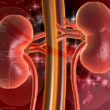Vitamin E is a nutrient that when ingested, the body fats soak up. With it, the cells are protected from radical damage that is associated with other health conditions including cancer, delays the arrival of Alzheimer’s disease, cataracts, bladder infections, heart disease, other chronic diseases, and protects the skin from UV damage.
Get more Vitamin E:
1. To enhance the body’s capability to absorb and use vitamin E, include more zinc and Vitamin C in your diet.
2. Store foods that are rich in vitamin E in capped, sealed, and sturdy compartments. Oxygen and vitamin E don’t get along so well.
3. Examples of foods that are rich in vitamin E are: flax seeds, sesame seeds, olive oils, and nuts. There are also the green leafy vegetables and fortified cereals.
4. Eat less processed foods as they have a great lesser amount of vitamin E than unprocessed ones.
Vitamin E deficiency risks:
1. Premature infants or those with a very low birth weight experience difficulties absorbing fat and vitamin E from their diets. With medical treatment, the situation would improve over time.
2. People who take drugs that lower cholesterol hinder the abilities of body to absorb fat.
3. People with lung, liver, gastrointestinal, and pancreas diseases may also find difficulties in absorbing vitamin E. Those diseases interfere with normal digestion.
4. Those who suffer from irritable bowel syndrome experience the hardest time absorbing vitamin E and fats from foods.
Signs of Vitamin E deficiency:
1. Gallbladder, pancreas, or liver problems.
2. Malabsorption and other digestive issues.
3. Loss of sensation in the hands and feet.
4. Skin dryness
5. Sensitivity to light
Vitamin E applied:
1. 1 cup steamed broccoli
2. 1 cup boiled spinach
3. 1 Medium kiwi
4. 2 tablespoons smooth peanut butter
5. 1 cup olives
6. ¼ Dry roasted sunflower seeds
7. 1 tablespoon wheat germ oil
8. 1 cup boiled spinach
Side effects or dangers:
Do not take high dosages of vitamin E orally. For pregnant woman, take only recommended amount and nothing more. For the infants and children, it is safe for them to orally take vitamin E. Consult your doctor about dosages. People with diabetes who take vitamin E have an increased risk of having a heart attack.













